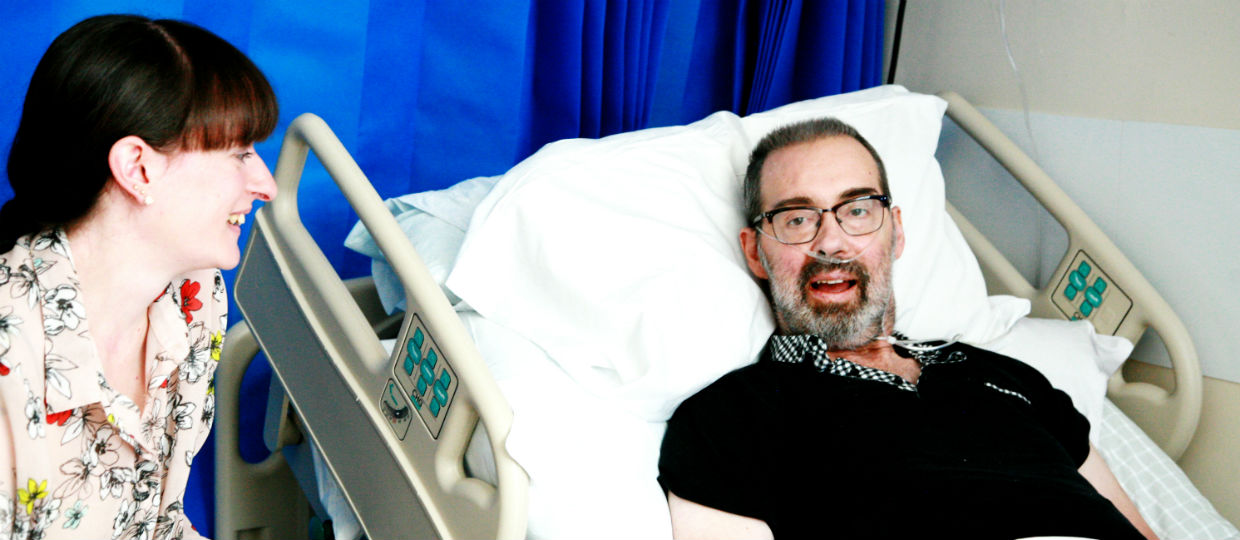What is a hospice?
"How people died remains in the memory of those who live on." Dame Cicely Saunders, founder of the modern hospice movement
What is a hospice?
Watch our video to learn more:
I felt I must write to thank you all for the wonderful care and kindness you showed to my family and especially to my son as he spent his last days at Priscilla Bacon Lodge. We are so grateful that he was able to be among such lovely dedicated people as he left us. Thank you all again.
– Mother of a former patient at Priscilla Bacon Lodge
More than just a building

Among the services offered by hospices are:
- Pain and symptom control
- Psychological and social support, including counselling
- Rehabilitation – helping patients to stay independent and continue to live their lives as they have done before
- Complementary therapies, such as massage and aromatherapy
- Spiritual care
- Family therapy
- Practical and financial advice
- Bereavement support and counselling
Hospices support people with a wide range of conditions; including, (but not limited to): cancer, motor neurone disease, cardio-vascular diseases, dementia, multiple sclerosis, chronic obstructive pulmonary disease (COPD) and Parkinson’s disease.


